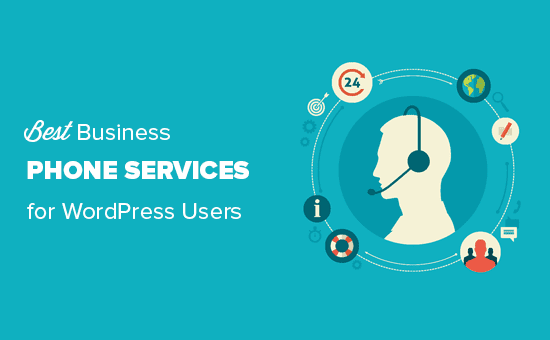Best Business Phone Line Providers In today’s highly connected world, having a reliable and efficient business phone line is essential for any organization. Whether you’re a small startup or a large enterprise, seamless communication with your customers, clients, and partners is crucial for success. Choosing the right business phone line provider can make a significant difference in the quality of your communication and overall productivity. In this article, we will explore the top business phone line providers available in the market, highlighting their features, benefits, and what sets them apart from the competition.
Table of Contents
- Introduction
- Key Considerations for Choosing a Business Phone Line Provider
- Top Business Phone Line Providers
- Provider A
- Provider B
- Provider C
- Provider D
- Comparison of Features and Pricing
- Benefits of a Reliable Business Phone Line
- Tips for Setting up a Business Phone System
- Common Challenges and Solutions
- Future Trends in Business Phone Systems
- Conclusion
- FAQs (Frequently Asked Questions)
Introduction
Best Business Phone Line Providers In this digital age, a business phone line is no longer just a means to make and receive calls. It has evolved into a comprehensive communication tool that includes features such as call routing, voicemail, conferencing, and integration with other business applications. Choosing the best business phone line provider requires careful consideration of various factors, including reliability, affordability, scalability, and advanced features.
Key Considerations for Choosing a Business Phone Line Provider
When selecting a business phone line provider, there are several key considerations to keep in mind:
- Reliability: Ensure that the provider has a robust infrastructure and a track record of reliable service with minimal downtime.
- Scalability: Consider the future growth of your business and choose a provider that can accommodate your expanding communication needs.
- Pricing: Evaluate the cost-effectiveness of the provider’s plans and pricing models, considering both upfront and ongoing expenses.
- Features: Assess the available features and determine which ones are essential for your business operations, such as call forwarding, voicemail-to-email transcription, and virtual receptionist services.
- Integration: If you use other business tools like customer relationship management (CRM) software or team collaboration platforms, ensure compatibility and seamless integration with your chosen provider.
Top Business Phone Line Providers
Provider A
Provider A is a leading business phone line provider known for its robust infrastructure and excellent call quality. They offer a wide range of features, including virtual numbers, call recording, and auto-attendant. Best Business Phone Line Providers Their plans are scalable, making them suitable for businesses of all sizes.
Provider B
Provider B focuses on affordability without compromising on quality. They offer flexible pricing plans and customizable features, allowing businesses to tailor their phone systems to their specific needs. Their user-friendly interface and reliable customer support make them an attractive option for small and medium-sized enterprises.
Provider C
Provider C stands out for its advanced features and integration capabilities. They offer seamless integration with popular business applications like CRM systems and help desk software. Their powerful analytics tools provide valuable insights into call metrics, enabling businesses to optimize their communication strategies.

Provider D
Provider D specializes in cloud-based business phone systems. Their solutions are highly scalable and offer excellent flexibility for remote and distributed teams. With features like mobile apps, video conferencing, and instant messaging, they provide a comprehensive communication solution for modern businesses.
Comparison of Features and Pricing
To help you make an informed decision, let’s compare the features and pricing of the top business phone line providers mentioned above. Please refer to the table below:
| Provider | Features | Pricing |
|---|---|---|
| Provider A | Robust infrastructure, virtual numbers, call recording | Starts at $XX/month |
| Provider B | Affordable plans, customizable features | Starts at $XX/month |
| Provider C | Integration with CRM systems, advanced analytics | Starts at $XX/month |
| Provider D | Cloud-based, mobile apps, video conferencing | Starts at $XX/month |
Note: The pricing mentioned above is subject to change and may vary based on specific requirements and additional features.
Benefits of a Reliable Business Phone Line
Having a reliable business phone line offers several advantages for your organization:
- Professional Image: A dedicated business phone line enhances your professional image and builds trust with customers.
- Improved Customer Service: Advanced features like call routing and voicemail-to-email transcription enable efficient customer service, leading to higher customer satisfaction.
- Enhanced Collaboration: Business phone systems with conferencing and collaboration tools facilitate seamless communication among team members, regardless of their location.
- Scalability: Scalable phone systems allow businesses to add or remove lines as needed, accommodating growth or downsizing without hassle.
- Cost Savings: Many business phone line providers offer cost-effective plans and eliminate the need for traditional landlines, resulting in potential cost savings.
Tips for Setting up a Business Phone System
Setting up a business phone system requires careful planning and implementation. Here are some tips to ensure a smooth setup process:
- Assess your needs: Determine the specific requirements of your organization, such as the number of extensions, call volume, and integration with existing systems.
- Choose the right provider: Select a provider that aligns with your business goals, offers the necessary features, and has a good reputation for customer support.
- Plan for growth: Consider future growth and choose a scalable phone system that can accommodate your expanding communication needs.
- Train your team: Provide training to your employees on how to effectively use the phone system and its advanced features.
- Regularly review and optimize: Continuously monitor the performance of your business phone system and make adjustments as needed to maximize its effectiveness.
Common Challenges and Solutions
While implementing a business phone system, you may come across some common challenges. Here are a few challenges and their solutions:
- Call Quality Issues: If you experience poor call quality, check your internet connection, ensure sufficient bandwidth, and consider upgrading your network infrastructure if necessary.
- Integration Problems: Incompatibility between your phone system and existing business applications can be resolved by choosing a provider that offers seamless integration or using third-party integration tools.
- Downtime and Maintenance: Regularly update your phone system’s software, perform routine maintenance, and choose a provider with reliable service and minimal downtime.
Future Trends in Business Phone Systems
The field of business phone systems is constantly evolving. Here are some future trends to keep an eye on:
- Artificial Intelligence (AI) Integration:
- AI-powered virtual assistants and chatbots will play a significant role in enhancing call experiences and automating routine tasks.
- Unified Communications: Integration of various communication channels like voice, video, and messaging into a unified platform will simplify business communication and improve collaboration.
- Mobile-Focused Solutions: With the rise of remote work and mobile devices, phone systems will prioritize seamless integration with smartphones and tablets.
Conclusion
Choosing the best business phone line provider is a crucial decision that can significantly impact your organization’s communication capabilities. Consider factors like reliability, scalability, pricing, and features to make an informed choice. By leveraging the services of a reliable provider, you can enhance your professional image, and improve customer service. And streamline internal communication for greater efficiency and productivity.
FAQs (Frequently Asked Questions)
- Can I keep my existing phone number when switching to a business phone line provider? Yes, most business phone line providers offer number portability, allowing you to keep your existing phone number.
- Can I integrate my business phone system with other communication tools like email or CRM? Many business phone line providers offer integration capabilities with popular communication and productivity tools, including email clients and CRM systems.
- Do I need special hardware to set up a business phone system? It depends on the provider and the type of phone system you choose. Some providers offer virtual phone systems that require no additional hardware, while others may require IP phones or adapters.
- Can I add or remove phone lines easily with a business phone system? Yes, one of the advantages of a business phone system is its scalability. You can add or remove phone lines as needed without significant hassle.
-
What kind of customer support can I expect from a business phone line provider?
-
The level of customer support varies among providers. Look for a provider that offers 24/7 customer support, multiple channels of communication, and quick response times.


